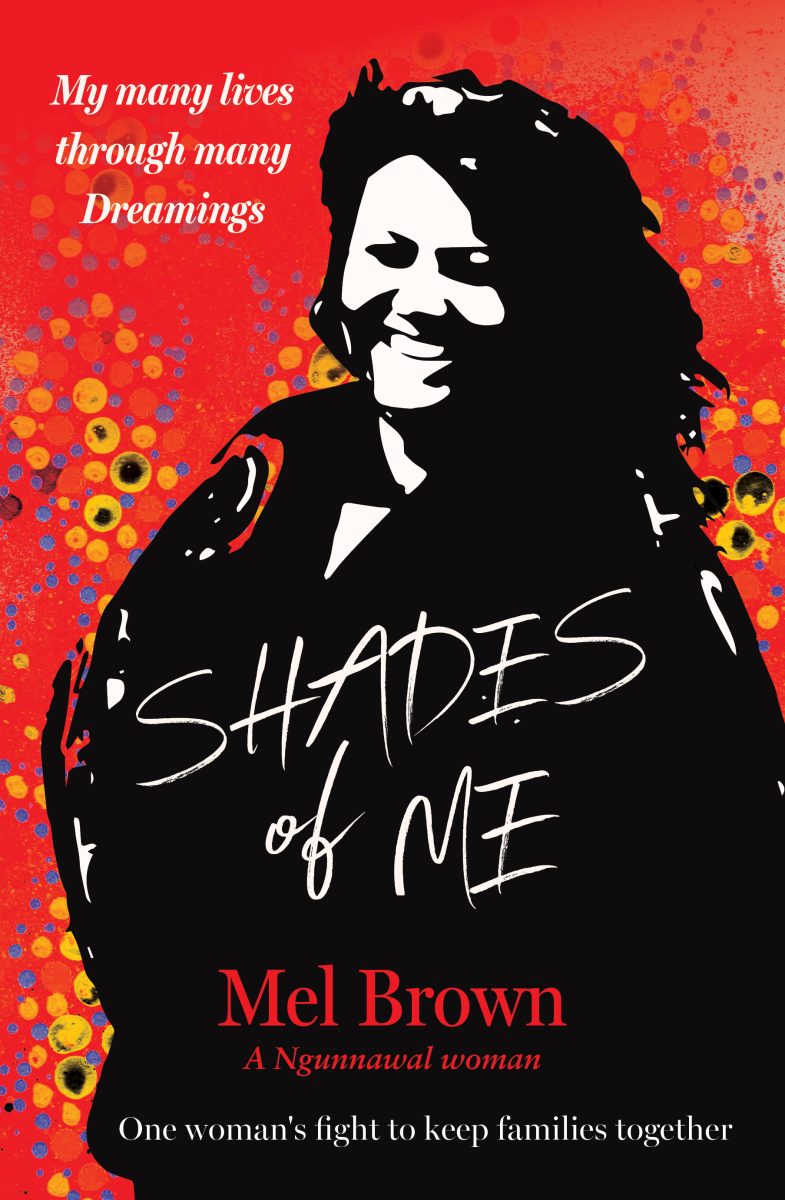
In Shades of Me, Ngunnawal woman Mel Brown shares the story of discovering her heritage and how the journey to understand her culture gave her the strength to find her place in the world. Photo: Supplied.
“In moving forward we need to first look backward to better understand and prepare for the journey ahead” is an unknown quote that defines Shades of Me, in what is a compelling read.
It delves into Mel Brown’s journey as a Ngunnawal woman navigating a world where her identity wasn’t always clear. It follows Brown’s absorbing journey as she re-evaluates who she is and how she sees her place in the world. Her memoir is about growing up white, but she always felt there was another shade to her soul. Despite an early life marred by moments of sheer despair and the agony of domestic violence, she somehow found the strength to survive.
As a young mother, Brown then unlocked her ancestry secrets without realising the challenges that came with identifying as Aboriginal in Australia. As Aboriginal families are being torn apart, this is a story of one woman’s fight to keep them together – one family at a time. In helping others, she finds her true path in life.
Brown admits she struggled with writing this book because there is darkness here, but also unexpected humour.
“I don’t use humour to undermine the truth or impact of the events themselves but rather to reconcile the past and make sense of what had happened to me,” she writes. “Trust me, there were times that without humour I would not have been able to write about some of the experiences I share in this book.
“However, humour can be a way to avoid truly experiencing the depth of emotions, and while it is important to have moments of lightness – which exist even in the darkest of times – I also have allowed … to experience some of the hard times I experienced in their full complexity and darkness.”
Everyone’s story is different; Brown’s account is not just one of black or white or even a single shade in between, but it is Shades of Me as she has discovered in her work for the community.
“This story has dark elements, but it is not a story of despair. It is instead a story about love, both good and bad, returned and badly used. A story of broken hearts, a story of love lost and found, and my greatest loves of all: my husband, children, family and the love for self that you can find if you are truly, totally honest in who you are.
“Trying to find a balance is really challenging for me because I feel a responsibility to ensure I don’t traumatise people who are reading my story … not just the difficult, traumatic elements, but the hope and joy that can be found even in the darkest times by navigating through and out of tunnels of depression, hopelessness and abuse. It is uniquely my story, but it is not a story too dissimilar to the stories of the one in three Australian women who have experienced similar situations of violence, loss and trauma.”
Brown is a former manager of the ACT Aboriginal Child Protection Unit and holds a master’s in Aboriginal Healing and Trauma.
“I was the first Aboriginal person employed in child protection in the ACT. So, together with another Aboriginal person who was hired after me, we pushed and pushed so we could get an Aboriginal protection unit set up,” Brown said. “I had a sense of what children and families would be going through because I had been there myself.”
In her gripping biography, Brown shares her profound journey of self-discovery and cultural awakening, giving some insights into her transformation from a survivor of abuse to a determined advocate for First Nations children and families. Her experiences highlight the need for reform within the child protection system and the importance of culturally sensitive care.
Brown points out that “our stories deserve to be told, in all their messy, hard, emotional glory”, and by doing so “I hope I have shown that there is a light at the end of the tunnel.”
Brown’s expertise in cultural competency and lateral violence has been recognised with numerous accolades including the ACT Public Service Award and recognition as one of the top Aboriginal businesswomen in NSW.
Shades of Me, by Mel Brown, Gelding Street Press, $34.99




